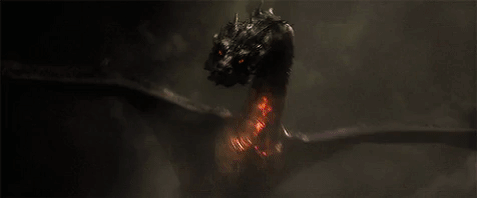Honesty and loyalty are key
Most of us consider loyalty a desirable trait.
If you're the beneficiary of loyalty, it's comforting to know that even a serious error or two won't get you fired or your relationship ended. If you're the bestower of loyalty, it feels good to be able count on someone and not have to think about replacing him or her.
But the fact that people stick with something through all the thin they’re presented with doesn’t mean they had no conditions. You might give your life for a good cause, but that doesn’t mean you would have stayed loyal to the cause if it meant that your family would be killed or your country nuked.
If your spouse became some kind of monster, your love would be affected and your commitment would change.
Most still see loyalty as the golden standard, believing that "faithful or steadfast allegiance" is required
However, effective leaders in the 21st-century understand it's not loyalty, but trust, that cultivates work cultures that will create the sustainable results they seek.
It's trust, not loyalty ...
- That enhances innovation, sparks creativity, and creates quicker paths to ideas, methods, and solutions.
- That enables real dialogue, evaluates communications, increases understanding, and encourages differing points of view for better decision making.
- That creates a safe harbor for meaningful conflict and thoughtful risk-taking that's needed to build a better future.
- That ignites engagement, enabling people at all levels to bring their talents to work.
- That creates an environment of accountability and independent problem-solving.
- That increases well-being, self-motivation, and big team thinking.
- That heightens productivity, contribution, and break-throughs.
- That increases personal commitment, and yes, even builds loyalty as a by-product of mutually beneficial and genuine work relationships.
Loyalty encourages complacency.
True, some people will behave well even if there's no accountability.
But we all know of people who, because they have job security, don't work diligently. Similarly, the marriage knot being hard to untie can lead to complacency as evidenced, for example, by this: All married couples, before an officiant, family, friends, and perhaps God, swore to be loyal for life. Yet many have affairs and half divorce, often claiming "That isn't the person I married," and often tearing each other apart over an armoire.
Loyalty is inferior to whistleblowing.
Many politicians and other leaders proudly assert that they look for loyalty in their advisors. Too often that means advisors who won't rat them out
Situations change:
A sense of loyalty often keeps employers from replacing a person who—all things considered—should be replaced.
She's kind, trustworthy and loyal—She would never leave for another employer. But managing a medical practice has changed dramatically in the last 15 years.
Effective leaders understand operating with trust is harder than demanding loyalty.
But when the people you lead can confidently rely on your behavioral integrity, character, and truth-telling, with confidence, results soar with speed and engagement.
You care about outcomes, consequences, the rewards and punishments for your effort. Cost/benefit analysis, whether conscious or unconscious, is operative in all of us on all decisions.
Still, I’m with the romantics in that I don’t think cost/benefit analysis is operative in real time all the time, as though the moment that costs outweigh benefits we just bail, saying “This isn’t worth it. I’m outta here.”
People think of cost/benefit analysis as cold and unromantic because they assume it’s the opposite of loyalty. In a way it is in that when you’re loyal, you give cost-benefit a rest for the time being.
Your spouse could be a monster for a day and, loyal as you are, you’re not going to re-evaluate the payoffs of staying in the marriage.

This post have been delivered to you by my sponsors; Sony, Apple, Fila, Volvo, Marlboro & Madagascar produced coffee beans ^^







| Camera | Canon EOS 77D |
| Lens | Canon EF S18-55mm f/4-5.6G |
| Location | Sweden; somewere |
| Owner | All Rights reserved,original content by @swedishdragon |
.gif)





